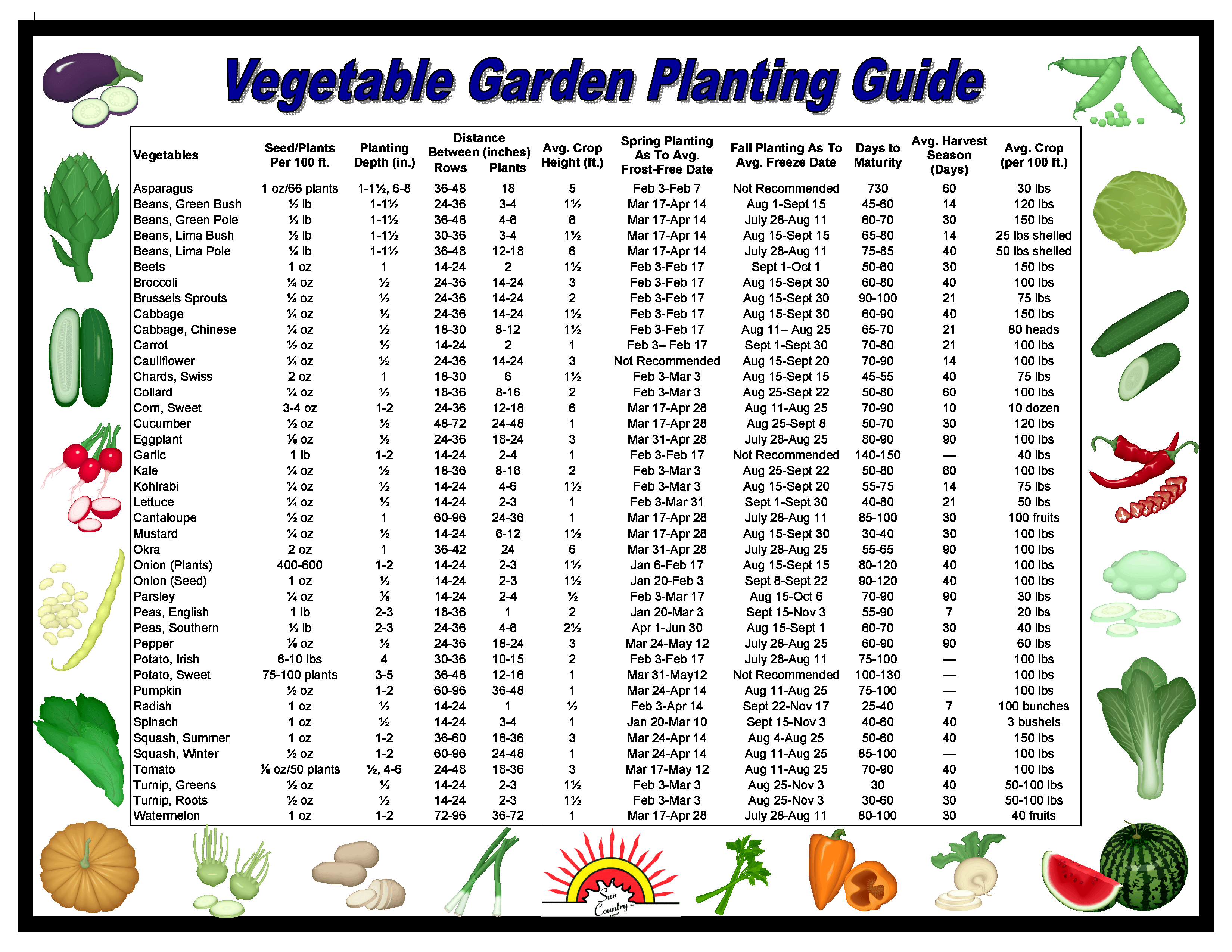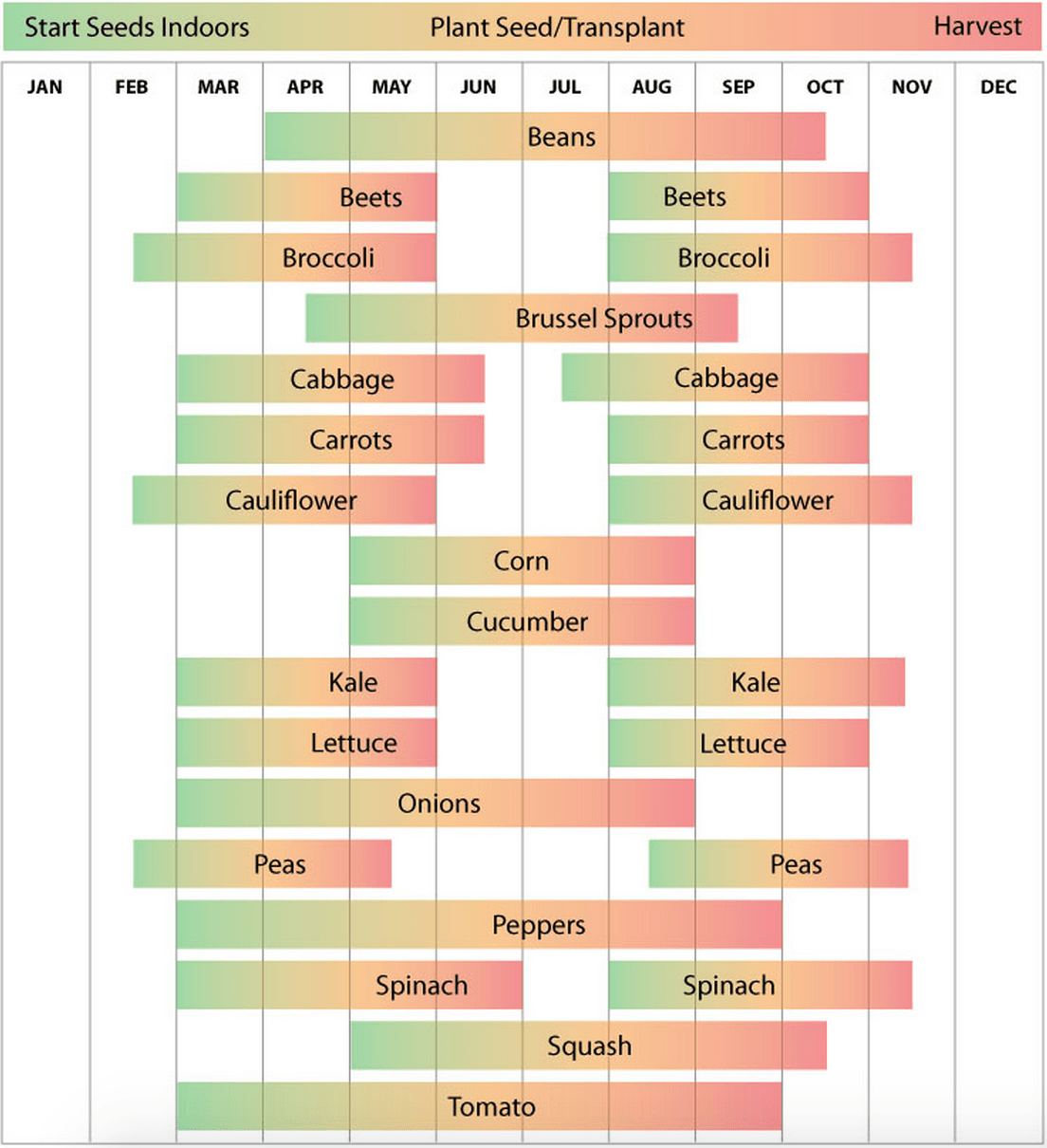Imagine biting into a sun-ripened tomato, warm from your own garden. The flavor explodes on your palate, a testament to the freshness and care you poured into nurturing it from a tiny seed. But achieving this garden-to-table dream starts with understanding the crucial question: when do you start planting vegetables?
Planting vegetables at the right time is the cornerstone of a thriving garden. It's a delicate dance between understanding your local climate, the specific needs of each plant, and the subtle shifts of the seasons. Getting the timing right maximizes your chances of a bountiful harvest, while planting too early or too late can lead to stunted growth, disease, or even complete crop failure.
The optimal vegetable planting time isn't a one-size-fits-all answer. It varies depending on your geographical location and the individual vegetable you're cultivating. Factors like average frost dates, temperature fluctuations, and the length of your growing season all play a role. Understanding these variables is key to unlocking the full potential of your garden.
Historically, determining the right planting time was passed down through generations, a blend of traditional knowledge and careful observation of nature's cues. Today, we have access to a wealth of resources, from online planting calendars to local agricultural extension offices, that can provide precise guidance for our specific regions. This allows gardeners of all experience levels to confidently plan and execute their planting strategies.
Successfully timing your vegetable planting has several significant benefits. First, it promotes healthy plant growth by ensuring seedlings are introduced to the optimal environment. Second, it increases your chances of a larger and higher quality yield. Finally, proper timing can help you extend your harvest season, allowing you to enjoy fresh produce from your garden for a longer period.
One simple example is starting tomato seeds indoors 6-8 weeks before the last expected frost date in your area. This allows the seedlings to develop a strong root system before being transplanted outdoors, giving them a head start on the growing season. Similarly, cool-season crops like lettuce and spinach can be sown directly outdoors in early spring, while warm-season crops like cucumbers and peppers should wait until the soil has warmed up sufficiently.
A step-by-step guide for determining your ideal planting time includes: 1. Identify your last spring frost date and first fall frost date. 2. Research the specific needs of the vegetables you want to grow. 3. Calculate the appropriate planting time based on the plant's maturity period and your local frost dates. 4. Monitor weather conditions and adjust your planting schedule as needed.
Advantages and Disadvantages of Early vs. Late Planting
| Early Planting | Late Planting | |
|---|---|---|
| Advantages | Longer growing season, potentially higher yields | Avoids frost damage, less pest pressure initially |
| Disadvantages | Risk of frost damage, increased pest pressure | Shorter growing season, potentially lower yields |
Best Practices: 1. Use high-quality seeds or seedlings. 2. Prepare your soil with appropriate amendments. 3. Provide adequate water and sunlight. 4. Monitor for pests and diseases. 5. Harvest at the peak of ripeness.
Real Examples: In zone 6, tomatoes are typically planted outdoors in late May. In zone 8, you might start planting peppers in early April. Gardeners in colder climates can extend their growing season by using cold frames or greenhouses.
Challenges and Solutions: Unexpected late frosts (solution: use row covers). Pest infestations (solution: implement integrated pest management strategies).
FAQs: When should I start my seeds indoors? What are the best vegetables for my climate? How do I harden off my seedlings?
Tips and Tricks: Start small and expand your garden gradually. Keep a gardening journal to track your progress and learn from your experiences. Join a local gardening club for advice and support.
Mastering the art of timing your vegetable planting is essential for any gardener seeking a bountiful harvest. By understanding the interplay between your local climate, the unique needs of each plant, and the resources available to you, you can unlock the full potential of your garden. The rewards of fresh, homegrown vegetables are well worth the effort. So, grab your gardening tools, plan your planting strategy, and get ready to enjoy the fruits (and vegetables) of your labor. Embrace the journey of learning and experimentation, and remember that each season brings new opportunities to grow and refine your gardening skills. Start planning your dream garden today!
Maximize your daytona beach space with murphy beds
Silver mist paint color the ethereal shade you need
Dominating the acc a deep dive into all 15 teams
What Vegetables Can I Grow In Zone 9B at Corey Crisp blog - Khao Tick On
When Should I Plant What - Khao Tick On
Zone 9b Planting Schedule 2024 - Khao Tick On
Viability Of Flower Seeds - Khao Tick On
Garden Planting Guide Zone 8 - Khao Tick On
Veggies To Grow In Garden at Matthew Theus blog - Khao Tick On
Fall Planting Schedule Zone 5 at Joyce Cruz blog - Khao Tick On
What To Plant When Chart - Khao Tick On
when do you start planting vegetables - Khao Tick On
When Can You Start Planting Flowers Uk at Nina Jacobs blog - Khao Tick On
Vegetable planting guide for Phoenix - Khao Tick On
Vegetable Planting Calendar Missouri - Khao Tick On
What Plants Grow In Spring And Summer at David Lovett blog - Khao Tick On
Sow what Helpful tips on when to start planting seeds in Ohio for the - Khao Tick On
Planting Calendar For Zone 7a - Khao Tick On














